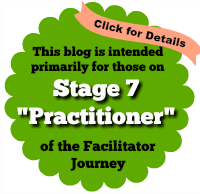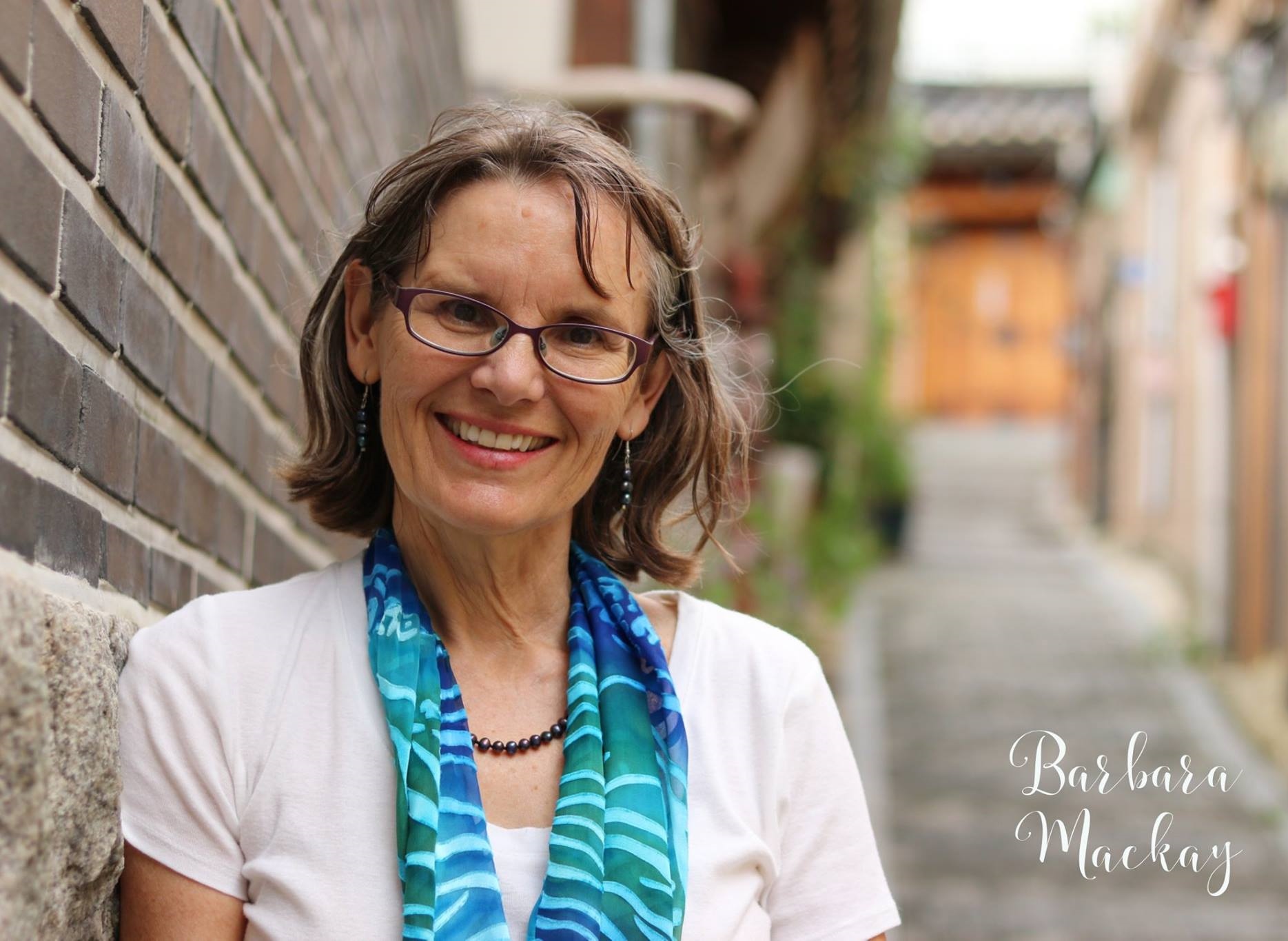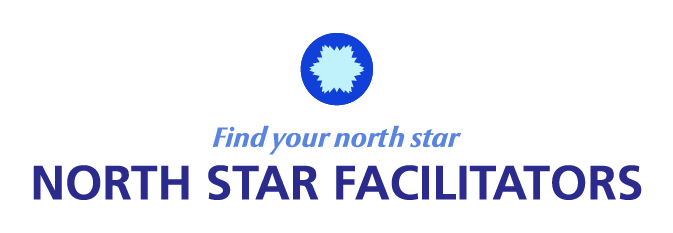How Facilitators Stop Power Imbalance, Dominance and Oppression

 This week marked the 100th anniversary of the end of World War I, November 11, 1918. WOW. I was in Canada for the last 2 weeks and we passed through a small village on Vancouver Island on this anniversary date. We passed by a beautiful gathering of veterans and citizens in a cemetery. People were wearing manufactured poppies on their jackets everywhere around me for at least a week before. In Canada, we call this Remembrance Day. I like that name. We strive to remember that war is not to be repeated. In the US we call it Veterans Day. I like that too. Honoring those who fought. I am quite amazed that it is the 100th anniversary of a global war that enlisted many allies. In this blog, I’d like to write what it takes to be a powerful ally for justice both in your day to day life and when you’re in a position of facilitating a group. Its a blog that is pretty personal for me. I hope it helps you remember to do the right thing when you witness or experience wrong action or speech.
This week marked the 100th anniversary of the end of World War I, November 11, 1918. WOW. I was in Canada for the last 2 weeks and we passed through a small village on Vancouver Island on this anniversary date. We passed by a beautiful gathering of veterans and citizens in a cemetery. People were wearing manufactured poppies on their jackets everywhere around me for at least a week before. In Canada, we call this Remembrance Day. I like that name. We strive to remember that war is not to be repeated. In the US we call it Veterans Day. I like that too. Honoring those who fought. I am quite amazed that it is the 100th anniversary of a global war that enlisted many allies. In this blog, I’d like to write what it takes to be a powerful ally for justice both in your day to day life and when you’re in a position of facilitating a group. Its a blog that is pretty personal for me. I hope it helps you remember to do the right thing when you witness or experience wrong action or speech.

The Impact of War and Injustice in My Own Life
I’ve only recently realized that war has had a very big impact on my life. My grandfather was in the first world war in England and he (illegally) enlisted when he was 17 years old in 1917. He only was able to serve one year til the war ended, but he served in the Air Force and literally hand dropped bombs out of holes in airplanes. He told me stories about this. His son, my uncle, served in the Navy during the Vietnam war. He resided in the US at that time. He died somewhat young, perhaps from Agent Orange poisoning. He never talked about the war. My mom grew up during World War II in England and experienced sleeping in a bomb shelter most of her pre-teen and teenage years. She still talks about how anxious she gets when she hears planes flying overhead. My siblings and I heard a lot of stories about that war as I grew up. I spent most of my adult years in Canada hearing that Canadians served as allies in the two world wars and occasionally assisted in other wars. Canada has not had the resources or the inclination to focus on military service. So I grew up with a sense that we as citizens needed to be allies in peacekeeping. I believed this has influenced my work as a facilitator and my work as a human being.
One of the things I have been acutely aware of growing up in Montreal with a large Jewish community is my desire to be a good ally to Jews. Of course I heard many stories about the holocaust growing up. I have many wonderful Jewish role models from my childhood. The recent shooting in Pittsburgh, USA of Jewish people in their synagogue happened while I was in Canada and has left me feeling very bereaved, shocked, scared. I can’t image how my Jewish colleagues and friends are feeling. This is a direct reminder of the genocide that occurred during World War II. I think that white gentiles, i.e. non Jewish white people, have no idea how terrifying it is to live in a society that continually ignores and attacks and tries to wipe out your people.
The What of Ally Work
There are very simple ways that we can be allies to anyone, not only Jews, who have experienced oppression from the more powerful segments of society. We see oppression acted out every day and often in our meetings and yet if we are unaware of it, it will keep happening and become the “norm”. We need to interrupt it systematically, not occasionally. So even though this anniversary of World War I makes me think of the recent US based hate crime toward Jewish people, the need to be an ally to many exists for all of us. We can be an ally a young people if we are adults. We can be an ally to the GBLTQ community if we are identifying as “straight” or a particular single gender. We can be an ally to Blacks if we are from other races. We can be an ally to Jews if we are Gentiles. We can be an ally to any persecuted religious minorities if we are identifying as Christian (the dominant religion in the US at least). The list goes on and on. Of course I’ve forgotten already that men can be allies to women. I often forget this because it’s an oppression I experience every day. It feels to me like this picture. Many branches to it, dull, obscure, complex, deeply rooted, impenetrable. But it does not have to be that complex.

The Why of Ally Work
I do not have great answers to solving oppression but I think about and often act on this every day. I wish I thought about it every moment. But, as a White, female-identifying Gentile living in the USA, I don’t have to think about it every minute or every day. We all have busy lives, we have families we care for, we may be in poor health and it’s too hard to look at. I want you to reconsider that perspective. It doesn’t have to be hard. In fact, being an ally to many who are different than you is rich, joyful and rewarding. It can feel like this picture. Bright, multi-layered, rich, ever changing and stunningly beautiful. It has been for me. Being a great ally provides you with vastly difference experiences of life. That’s the why. Here’s the how. It’s just a beginning. I want to hear how you have been an ally to anyone. Particularly, how have you been an ally as a facilitator?

The How of Ally Work
1. Cultivate Deep Relationships with People Different From You
When I was in my teens I made a conscious decision to get closer to French Canadians in my province of Quebec. I was an English Canadian. I lived in a very safe enclave of English speaking people and didn’t know a single French Canadian. It was apparent to me without even being told that the French Canadians were being treated very badly. So with no experience in being an ally to French Canadians, my first thought was “learn their language”. My second thought was “go live with them”. That was a radical move that changed my life. I did go to college in French and almost failed as a result of not understanding very much of what was being taught to me. I asked one of my brother’s friends who was French Canadian if she would rent an apartment with me. We ended up not only living together but we spent a year traveling together. This friend, Claire, is still a huge joyful part of my life today. So the first step to being an ally is to find a way to REALLY get to know a person or people from a group that is different than your own. The next time you think, “I don’t know how to be a friend to a Black person or a Jewish person because I don’t know any”, think again. Where might you start to have a relationship with a person from a completely different group of people than your own? This will change how you facilitate. Guaranteed. you will be more aware of injustice and power imbalance in the room and you will do something about it.
2. Be a SUPER Dependable and Compassionate Friend and Colleague
Each group of people has their own cultural norms and learned patterns of behaviors, speech, traditions. Some of these will be difficult for you to understand. They may irritate you or perplex you. First of all, remember that a group’s patterns of behavior often arise because of oppression. It has been systematically instilled to protect that group. So if a particular group’s behavior is perplexing to you, ask questions so you understand and can be compassionate about why people are the way they are. When you say you will do something for someone in a group different from your own group, keep your agreement. Don’t be wishy washy about it. It is one of the most important things in being an ally – to be a dependable, reliable friend and colleague. SUPER dependable. If you make a mistake in failing to meet a commitment or forgetting to stay in touch, admit it to yourself, them, and get back on track. I have learned the hard way. You need to do this in facilitating too. When you notice you have failed to reliably advocate for the under-heard, you need to apologize and redouble your efforts.

3. Remember Being an Ally is a Blessing in Your Life
I know my Jewish friends and colleagues need to know they are important to me. They need to know how much joy and happiness they bring in my life. I need to be better in telling them that. Any oppressed person needs to know they are wanted, respected, liked and valued. It is our jobs as allies to continually uplift and notice the amazing qualities of our friends and colleagues who are part of an under-represented/oppressed group. I think in the case of Jews in North America at least, a lot of gentiles don’t even know some of their friends and colleagues are Jewish. This is often because it is too scary to identify as a Jew – still today. Yes. That is true. That should have never of happened. Every Jewish person should be allowed to express their Jewishness and not be afraid of being dismissed, ignored, or blamed. I talk about Jews because of the recent synagogue killings but this applies to any group. There are many, many people that don’t feel they can talk about their identity. A ridiculously mundane example in my own instance is when I moved to the United States. I was continually teased about my Canadian use of certain words and accent. It made me feel ashamed or stupid. What happened? Today I do not use that accent or words. I do everything I can to avoid being called out for my Canadian accent. My Canadian friends tell me I have an American accent. This is a very small, insignificant example of how we become invisible because people unintentionally and sometimes intentionally make it extremely uncomfortable to be themselves. It is called assimilation, i.e., try as hard as you can to not be called out for being part of a certain group. Many Jews have assimilated.

4. Call Out Inappropriate Behavior
I’m going to give you just a simple example of a facilitation session I was a part of. A White man kept interrupting his colleagues and speaking loudly over them. One of his colleagues was a woman of color. I was in the position of facilitator, but I probably could have done something if I was a participant. The interruption was so blatant and dominating, that I chose to be quite forceful in my calling out of this behavior. I called this person out by their name and said “you are dominating”. I asked them if they would be willing to listen and let this person finish speaking. Later when we were alone in the room I checked in with the participant who has been interrupting and asked if my intervention had been too harsh. To his credit he said, “Not at all. It’s exactly what I needed. It’s a learning edge for me.” That was very sweet to hear his willingness to change and his non-defensiveness. Every time we are facilitating a room of people, there will be a dominant and less dominant group members. We have so many tools to interrupt the imbalance of power in the room. If you are part of the dominant group as the facilitator, be sure to notice who does not have power in the room. Make it safe for them to speak and be a fully participating member of the group. show them you are an ally. Check with them (before the session or during a break) how you can make it safer for them to speak out. It may be uncomfortable for you or even scary, but it’s immensely important – a small step to correcting injustice, restoring peace in the team and organizations and ultimately the world.
Conclusion
We are looking for harmonious and wholesome speech and actions toward every human being. That’s our job. Practice it every day of your life, every moment of your life, whether you are facilitating or not. There is a whole lot more to say but this is enough for now. Four small steps, but they are really big steps in changing the world. There are some wonderful workshops offered by my colleague, Nanci Luna Jimenez. I worked with her for 9 years and I highly recommend her work.
Resources
Blog: Facilitation Can Change the World – An Interview with Barbara MacKay
Blog: Challenging Participant Behaviors – An 8 Step Survivor’s Guide
Blog: Eight Ways to Process a Tragedy
Website: Nanci Luna Jiménez


Barbara, I really liked your blog on ways to become an ally. I work with multiple partners in the nature resource industry and have encountered a dominate personality that bullys the rest of the partnership in an effort to gain funds to work in his agency’s planning area. If there are other blogs, resources or training events you recommend for gaining more skills in this area, I would be very interested.
Thank you
Hi Renee, wondering how things are going right now. I haven’t had time to research other resources and when I do I’ll try to pass them along to you.